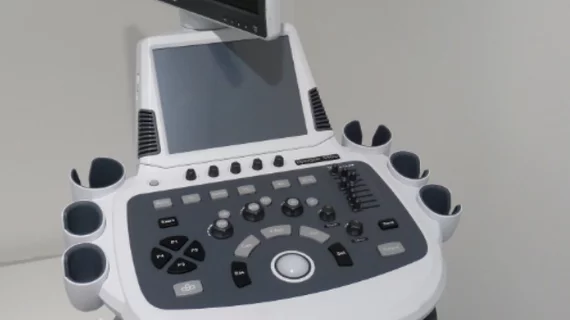Researchers develop Band-Aid sized ultrasound scanner
University of British Columbia (UBC) engineers have created a new ultrasound machine that’s reportedly “no bigger than a Band-Aid” and could lower the cost of ultrasound scanners to $100.
According to a press release, typical ultrasound machines use piezoelectric crystals to create images and send them to a computer to create sonograms. Engineers created the ultrasound machine by replacing piezoelectric crystals with tiny, vibrating drums made of polymer resin.
With the drums being cheaper to manufacture than the crystals and by using a minimum amount of equipment, engineers said they saw a “significant cost savings” while creating the device. They also said the “sonograms produced by the UBC device were as sharp as or even more detailed than traditional sonograms produced by piezoelectric transducers.”
Engineers also said the new ultrasound machine as is “no bigger than a Band-Aid,” portable, wearable and can be powered by a smartphone. A patent is pending for the device. Engineers also hope to create more prototypes and test the device in clinical applications, the release stated.
“You could miniaturize these transducers and use them to look inside your arteries and veins. You could stick them on your chest and do live continuous monitoring of your heart in your daily life. It opens up so many different possibilities,” UBC professor Robert Rohling said in a statement.

